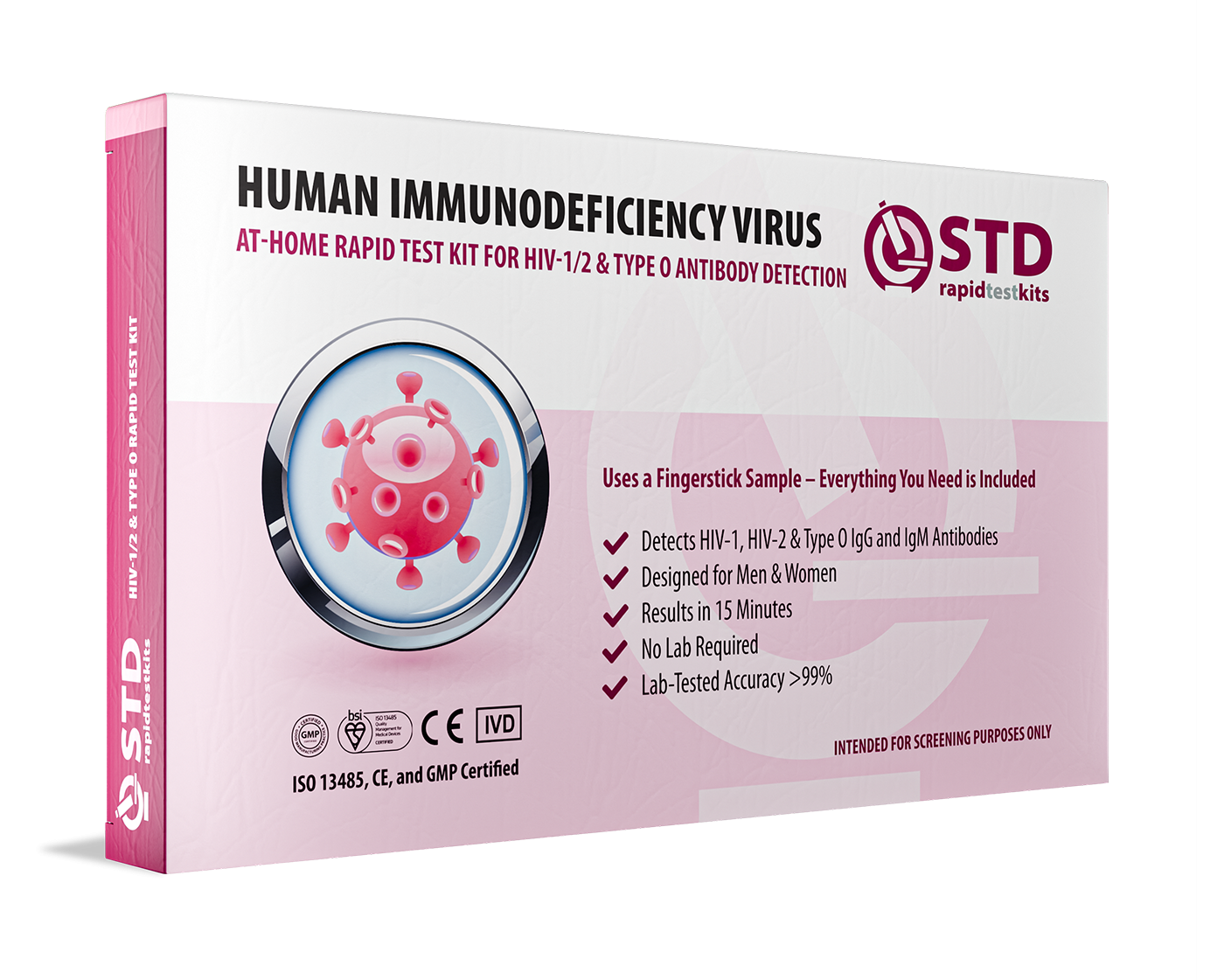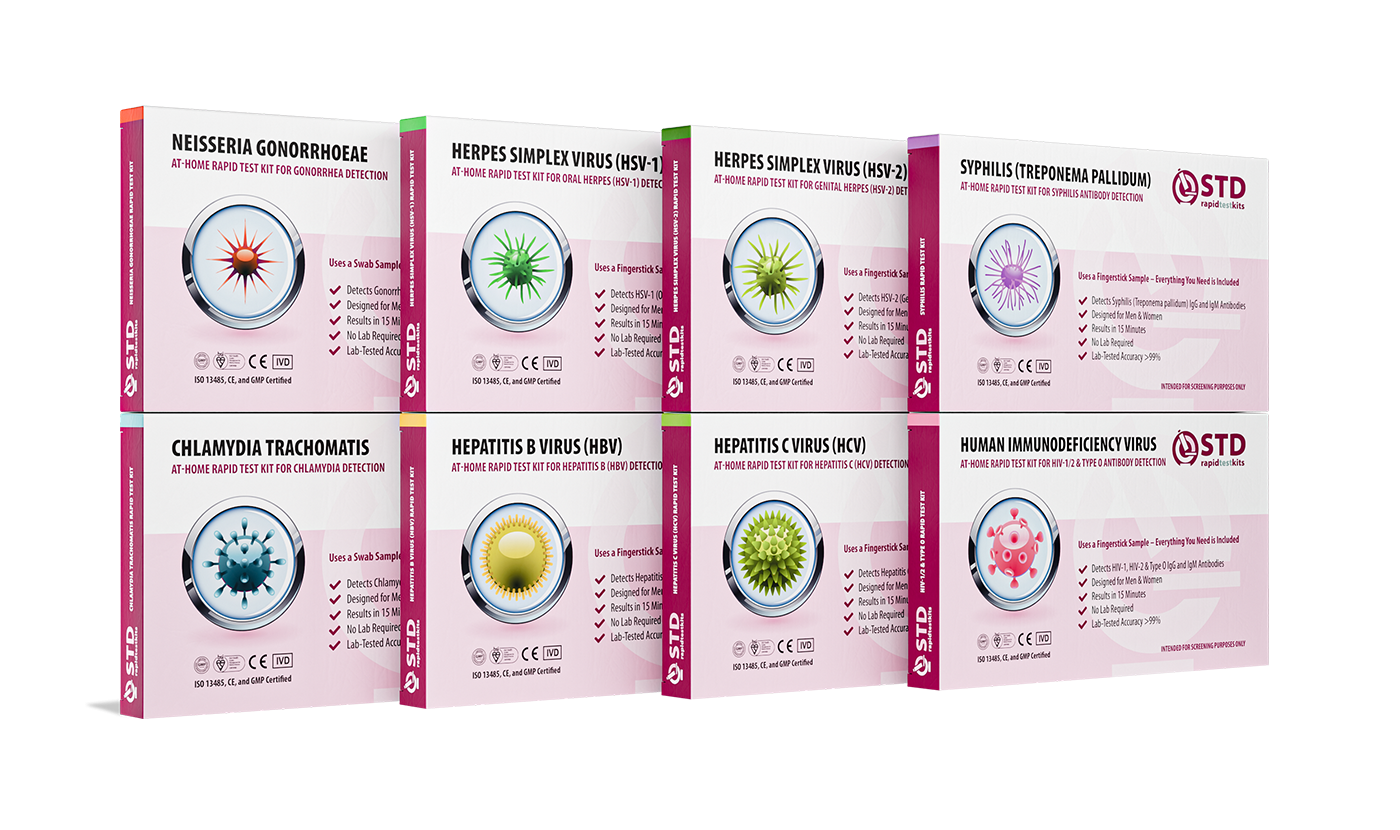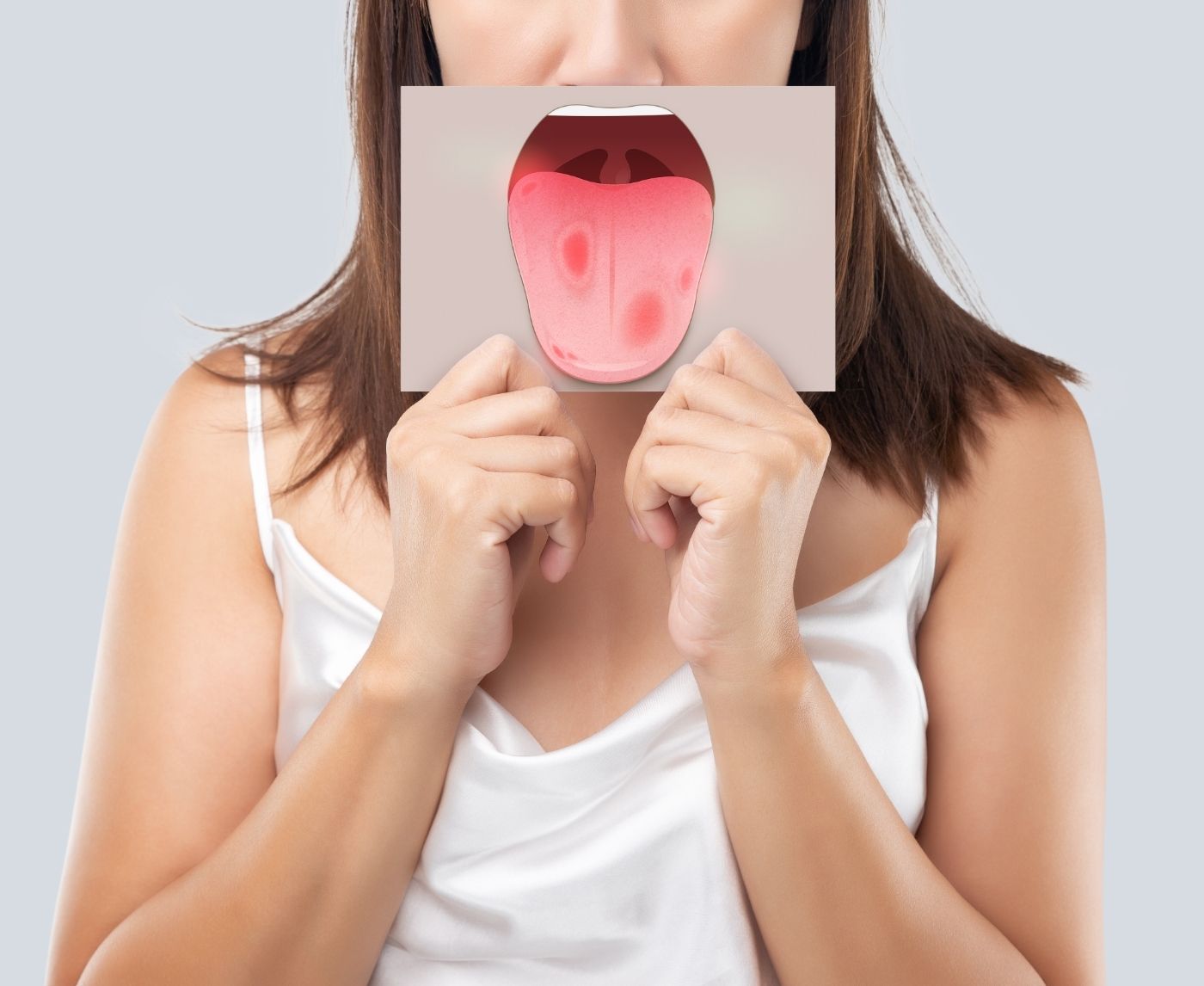Quick Answer: Yes, oral sex can transmit HIV, but the risk is much lower than vaginal or anal sex. Factors like cuts in the mouth, bleeding gums, and ejaculation increase that risk.
This Isn’t Just About Spit, It’s About Blood, Fluids, and Friction
Oral sex feels lower-risk because it doesn’t always come with the same physical intensity as anal or vaginal penetration. But what many people forget is that your mouth is a mucous membrane, just like your genitals and anus. That means viruses like HIV can still pass through microscopic tears or get absorbed through inflamed tissue.
There are two main ways HIV transmission can happen during oral sex:
- Giving oral sex (mouth on penis or vulva): If you have open sores, gum disease, bleeding gums, or even just a cut in your mouth, HIV can enter your bloodstream through contact with semen, vaginal fluid, or blood.
- Receiving oral sex: Extremely low risk, but possible if the person giving oral has bleeding gums or sores and you have open lesions on your genitals or anus.
It’s not the act itself, it’s the conditions surrounding it. Blood, ejaculate, inflamed tissue, ulcers, or STI coinfections can all elevate risk.
People are also reading: Why Men Struggle to Admit They Have an STD
Case Study: “I Thought It Couldn’t Happen from a Blowjob”
Ty, 28, was in a monogamous relationship when he cheated once at a bachelor party. “It was just oral. I didn’t even finish. I thought I was being safe,” he said.
“Three months later, I had swollen glands and night sweats. I got tested just to be sure, and that’s when I found out I was HIV-positive. I was shocked. I hadn’t had ‘real’ sex.”
Ty’s story isn’t about fear, it’s about understanding that oral sex isn’t magically risk-free. His partner had a high viral load and ejaculated in Ty’s mouth. Ty also had bleeding gums at the time.
That’s what made it possible.
The Numbers Don’t Lie, But They’re Easy to Misunderstand
Here’s what medical data tells us: the risk of acquiring HIV through oral sex is much lower than through unprotected anal or vaginal sex. But “lower” isn’t zero. According to the CDC, oral sex has a “negligible” risk, meaning it’s uncommon, but still documented.
Estimated transmission risk for oral sex:
- Receptive oral sex with ejaculation: Less than 1 in 10,000 exposures
- Receptive oral sex without ejaculation: Much lower, near-zero risk
- Giving oral to a vagina or anus: Risk is very low but not absent
These stats assume no other risk factors like bleeding gums, untreated STIs, or high viral load. Layer a few of those on, and the risk rises.
And most importantly, how many people actually know their HIV status, or their partner’s?
When the Mouth Is a Gateway: What Elevates Risk During Oral
Let’s get real about what increases the odds of HIV passing through oral sex. Spoiler: it’s not just about whether or not you “finish.”
- Bleeding gums or gingivitis: Creates a pathway directly into the bloodstream
- Oral ulcers, cold sores, or cuts: Entry points for the virus
- Ejaculation into the mouth: More fluid = higher viral exposure
- High viral load in the partner: Greater presence of virus in semen or vaginal fluid
- STI co-infection: Increases inflammation and weakens mucosal barriers
If you’ve ever had a sore throat or mouth pain after a hookup, this section’s for you. The mucosa isn’t a steel wall. It’s vulnerable, and so are you if you’re not informed.
Check Your STD Status in Minutes
Test at Home with RemediumHIV Rapid Test Kit

 For Men & Women
For Men & Women Results in Minutes
Results in Minutes No Lab Needed
No Lab Needed Private & Discreet
Private & DiscreetOrder Now $33.99 $49.00
“But I Didn’t Swallow”, What Really Matters and What Doesn’t
This is one of the most common things people say to justify not testing after oral: “I didn’t swallow.” But here’s the thing, transmission doesn’t require swallowing. It requires exposure to infected fluid + a way into your bloodstream.
That could be:
- Holding semen in your mouth, even briefly
- Performing oral sex with bleeding gums or recent dental work
- Brushing your teeth right before or after oral (microtears + friction)
Whether or not you swallowed is irrelevant if your mucous membranes were compromised. It’s not about shame, it’s about how bodies and viruses work.
What Symptoms to Watch for After Oral Sex
HIV can stay silent for weeks, sometimes even longer. But when it does show up, it’s usually through symptoms that feel eerily flu-like. Many people chalk it up to stress or allergies. But if it follows unprotected oral sex, especially with ejaculation or mouth trauma, you should pay attention.
- Fever: Often one of the first signs
- Swollen lymph nodes: Especially in the neck
- Sore throat: With no clear cause
- Mouth ulcers: Painful, persistent, not canker sores
- Night sweats and fatigue: Often brushed off, but telling
This stage is called “acute HIV infection,” and it’s when viral load is highest, meaning you’re most likely to pass it to someone else without knowing. That’s why catching it early with a test matters so much.
If you’re experiencing these symptoms, especially after oral sex with a new or unknown-status partner, get tested. Y
The Emotional Trap: “I Was Just Being Careful”
Let’s be honest, oral sex is often how people try to stay “safe” while still being spontaneous or experimental. It’s framed as the compromise between protection and passion.
But for a lot of folks, especially in queer, Black, and Latino communities where HIV stigma runs deep, that calculated risk is more loaded. Avoiding penetration doesn’t erase vulnerability. Avoiding condoms doesn’t mean you’re reckless. But avoiding facts? That can cost you.
Ellie, 24, said it best:
“I always thought I was making the smart choice by just doing oral. I didn’t realize how much I was trusting someone I barely knew, not just with my body, but with my life.”
Her first and only oral-only encounter led to an HIV diagnosis six months later.
Testing isn’t an accusation, it’s a form of self-trust. It means saying, “I value myself enough to check.”
People are also looking for: How an STD Diagnosis Saved My Sex Life
Ways to Protect Yourself Without Killing the Mood
Risk reduction doesn’t have to mean killing desire. There are real, doable ways to keep oral sex fun and low-risk without turning it into a surgical procedure. Here’s how:
- Use condoms or flavored barriers: Especially if you don’t know your partner’s status or they haven’t tested recently
- Rinse, don’t brush: Skip brushing right before or after sex; use mouthwash instead to avoid microtears
- Don’t let partners ejaculate in your mouth: If you do, don’t hold it, spit and rinse promptly
- Check for visible sores or cuts: On both you and your partner before oral contact
- Talk about testing status: Make it part of foreplay, seriously. Normalize it.
Protection doesn’t mean paranoia, it means power. And yeah, you’re still hot even when you use a dental dam.
Worried about a recent oral encounter? Don’t wait.
What About Rimming, Tongue Kissing, or Oral on Someone with HIV?
This is where things get nuanced and where fear can easily take over if you're not grounded in facts.
- Rimming (oral-anal contact): HIV risk is extremely low unless there are open sores or bleeding gums involved, but Hepatitis A, B, parasites, and bacteria are commonly spread this way.
- Kissing: Casual or deep kissing does not transmit HIV, unless both partners have open wounds or bleeding in the mouth. Even then, it’s still a theoretical risk.
- Oral sex on someone living with HIV: If they’re undetectable (U=U), there is effectively zero risk of transmission, even through oral.
So context matters: Are they on meds? Are you bleeding? Is there ejaculation? Is anyone being honest about testing?
HIV isn’t a ghost that floats through spit. But if conditions line up just wrong, oral can be a real transmission path. Not common. Not impossible.
Testing After Oral Sex: When, How, and What to Expect
If you’re reading this with a knot in your stomach, wondering if you should get tested, don’t ignore that instinct. You deserve clarity, not guesswork.
Here’s what you need to know:
- Window period: Most HIV tests detect infection within 2 to 4 weeks, but for maximum accuracy, wait 90 days post-exposure.
- What test to use: Use a 4th-gen antigen/antibody test or an FDA-approved HIV test kit that screens for both types.
- How to test: At-home tests are fast, discreet, and don’t require awkward clinic visits. Prick your finger, send it in, or use a rapid test with results in minutes.
If you’ve had oral sex, especially with ejaculation in the mouth, visible mouth sores, or bleeding gums, testing is a smart, caring next step. Not because you should panic. Because you’re worth knowing for sure.
Check Your STD Status in Minutes
Test at Home with Remedium8-in-1 STD Test Kit

 For Men & Women
For Men & Women Results in Minutes
Results in Minutes No Lab Needed
No Lab Needed Private & Discreet
Private & DiscreetOrder Now $149.00 $392.00
For all 8 tests
Why This Conversation Feels So Heavy, And Why We Still Need to Have It
Let’s get something straight: shame is a terrible health strategy. The reason so many people don’t test, don’t ask, or don’t know is because the conversation around HIV and oral sex has been weaponized with judgment and silence.
For queer folks, for women exploring dominance, for teens who were never taught about anything but condoms in sex ed, oral becomes “safe” by default. But silence about real risk only reinforces fear and stigma.
Milo, 21, said it best:
“I felt like if I admitted oral could give me HIV, I’d have to admit I wasn’t as careful as I thought. But now I know: testing isn’t a punishment. It’s protection.”
We’re not here to scare you. We’re here to tell the truth so you can protect your joy, your health, and your people.
If you’ve been avoiding this part of your sex life, it’s time to bring it into the light. Oral sex deserves the same attention, and respect, as everything else.
Oral Sex and Queer Realities: Why the Risk Conversation Hits Differently
In queer spaces, especially among men who have sex with men, oral sex is often treated like the default, low-risk option. It’s seen as the “safe” way to hook up without diving into what some might call “real sex.” But the stats don’t lie: men who have sex with men still account for the majority of new HIV cases in the U.S.
That’s not about shame. It’s about access to testing, how viral load works, and the fact that oral sex is rarely discussed in mainstream HIV prevention messaging. When the conversation skips you, it’s easy to think the risk doesn’t apply to you.
But it does. Not in a fear-based way, but in a call-to-care kind of way.
- If your partner’s status is unknown or recent
- If oral sex is your go-to default to avoid condoms
- If you're in a community with high prevalence and low trust in providers
You deserve honest, clear info that doesn’t erase your experiences or desires. And that includes how oral sex fits into your HIV prevention plan.
Testing, treatment, PrEP, and protection are all on the table. Use them however fits your body and your life.
PrEP, U=U, and the Modern Toolbox for Risk Reduction
The days of “just say no” or relying on condoms alone are over. HIV prevention has grown up, and now we’ve got a whole toolkit.
- PrEP (Pre-Exposure Prophylaxis): A daily or on-demand pill that dramatically reduces your risk of HIV, even through oral exposure
- U=U (Undetectable = Untransmittable): If your partner is living with HIV and their viral load is undetectable, they can’t transmit the virus, even during oral sex
- Routine testing: Knowing your own status and your partner’s takes the guesswork out of intimacy
- STI treatment: Treating other STIs lowers inflammation and mucosal vulnerability, which lowers HIV risk
This isn’t about turning sex into a science project. It’s about showing up for yourself and your partners in ways that feel sexy, safe, and smart.
If oral sex is part of your life, and let’s be real, it probably is, then it’s time to include it in your prevention strategy. Not just condoms. Not just hope. But care, conversation, and choice.
People are also reading: What Does Syphilis Look Like?
FAQs
1. Is it possible to get HIV from giving oral sex?
Yes, but the risk is low. If you have sores in your mouth, bleeding gums, or if you ejaculate in your mouth, the chance goes up.
2. Can you get HIV by having oral sex?
It's very unlikely, but not impossible, especially if the person giving oral sex has bleeding gums or open sores.
3. Is swallowing semen more likely to give you HIV?
Yes. When you swallow, HIV can get to the throat and digestive lining. If there are sores or inflammation there, the virus can get inside.
4. Is it okay to kiss someone who has HIV?
Yes. Kissing, saliva, or casual contact do not spread HIV unless both people have open bleeding wounds in their mouths.
5. How long after having oral sex should I get an HIV test?
You can test between 2 and 4 weeks, but the most accurate results come from a follow-up test at 90 days.
6. What are some signs of HIV in the mouth?
After having sex without protection, look for sores that don't go away, thrush (white patches), a sore throat, and swollen lymph nodes.
7. Do condoms keep you from getting HIV when you have oral sex?
Yes. Using condoms and dental dams greatly lowers the chance of getting HIV and other STDs while having oral sex.
8. If I have another STD, does oral sex put me at a higher risk for HIV?
Yes. STDs like herpes and syphilis can cause open sores that make it easier for HIV to spread.
9. Does using mouthwash help keep you from getting HIV during oral sex?
It can kill some bacteria, but it doesn't stop HIV. Some rinses that contain alcohol can actually make your gums hurt and raise your risk.
10. If I mostly have oral sex, is PrEP helpful?
Yes, especially if you have more than one partner or are at higher risk. PrEP protects you from all kinds of exposure, even oral.
You Deserve Answers, Not Assumptions
Oral sex might seem “safe enough”, until it’s not. But you don’t need to carry that uncertainty in silence. Whether you’re rethinking a random hookup, processing a scare, or just finally asking the question out loud: you deserve clarity.
HIV isn’t the ghost story it used to be. It’s a medical condition, with real prevention tools and better outcomes than ever before. But none of that matters unless you know your status.
Don’t wait and wonder, get the clarity you deserve. This at-home combo test kit checks for the most common STDs discreetly and quickly.
Sources
1. World Health Organization – HIV/AIDS Facts
2. What causes white spots on your throat – Healthline (strep throat, thrush, mono, herpes)










